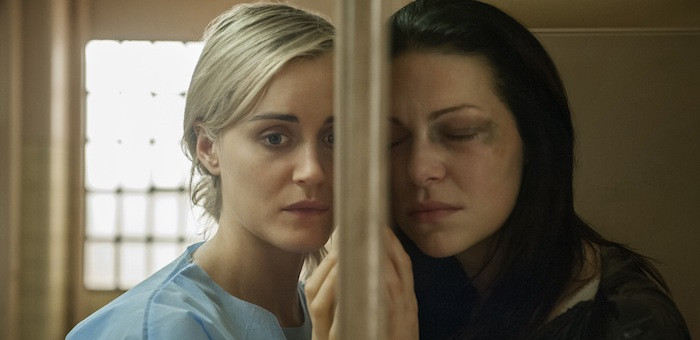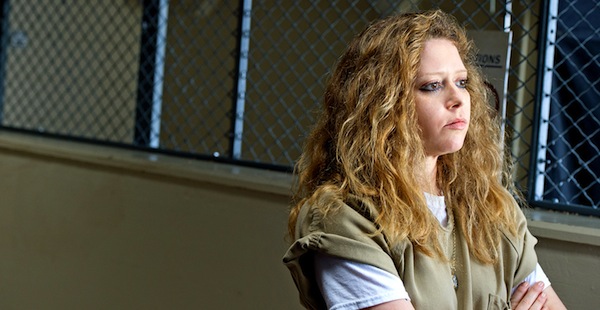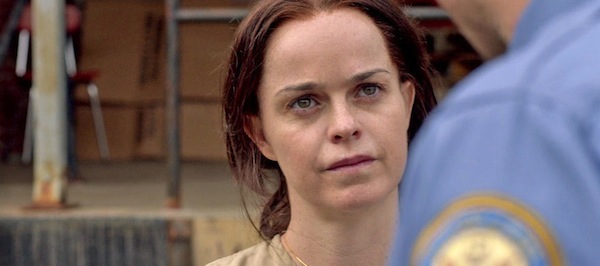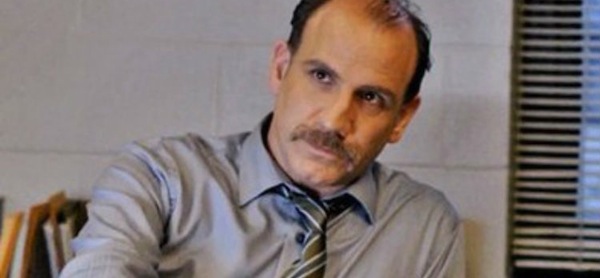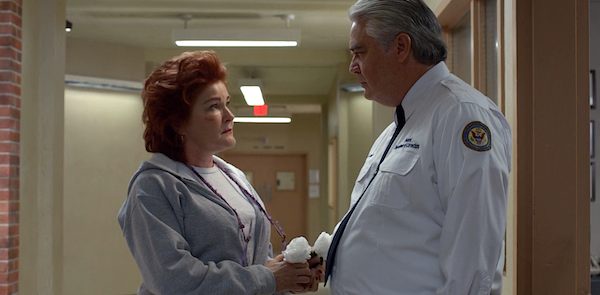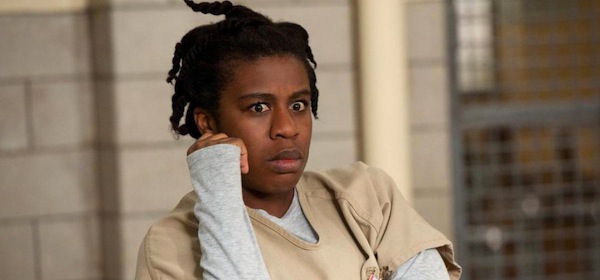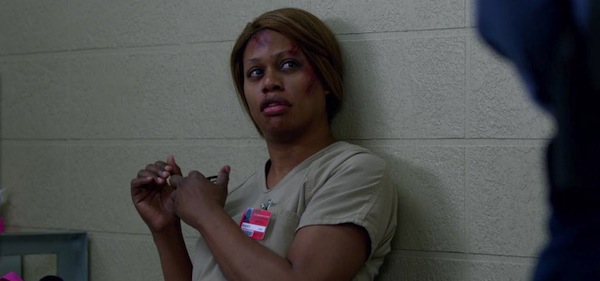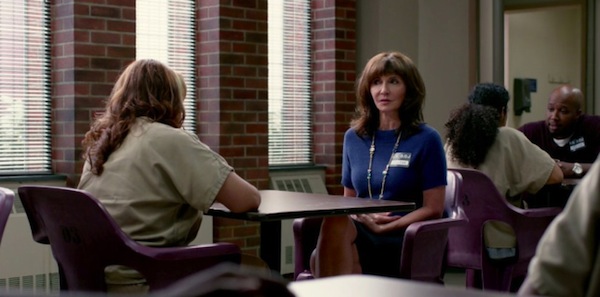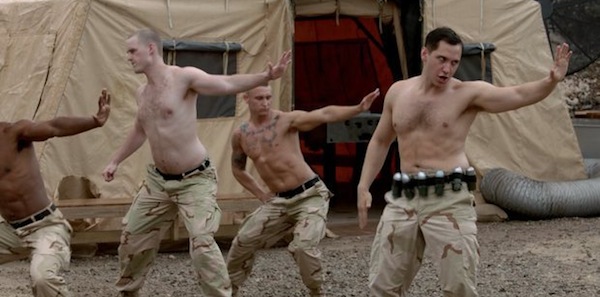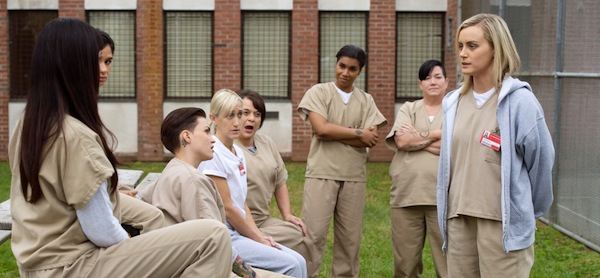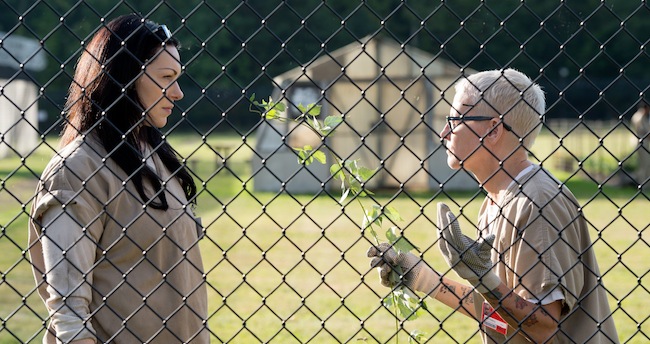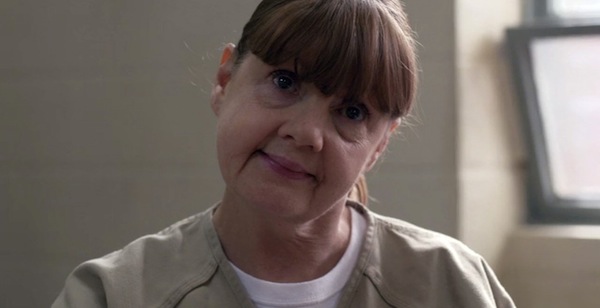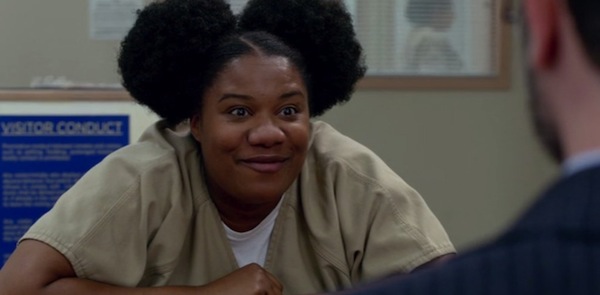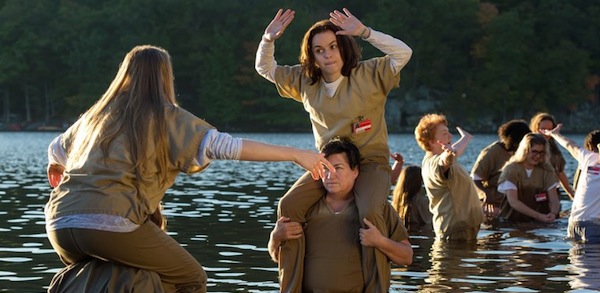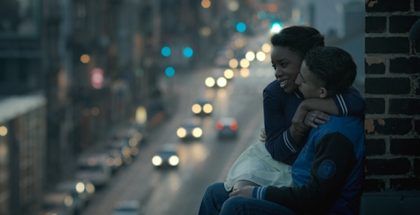Top 15 moments of Orange Is the New Black: Season 3
David Farnor | On 12, Jun 2016
With Season 4 of OITNB on the way this month, we look back at our favourite bits from Season 3. Warning: Spoilers.
“Everything is different the second time around,” sings Orange Is the New Black’s theme tune. By the time the show reached its third season, things had changed quite a bit.
Season 1 of Jenji Kohan’s prison drama followed spoiled white woman Piper Chapman (Taylor Schilling), as she acclimatised to life in an orange jumpsuit. She brought with her prejudices, self-preoccupation and personal baggage, in the form of Alex Vause, her former lover (the fantastic Laura Prepon). Chapman, though, was our window into Litchfield’s prison population: it soon became apparent that the series was just as interested, if not more so, in her inmates.
Season 2 shunted Piper into the sidelines, evolving from a kaleidoscopic character piece to something approaching a gangland war, as the villainous Vee returned to wage conflict between the black and Latina convicts, a battle that brought out a new side to ageing kitchen veteran Red (the deliciously drawling Kate Mulgrew), Taystee (Danielle Brooks) and Suzanne, aka. “Crazy Eyes” (Uzo Aduba). It was Rosa (Barbara Rosenblatt), though, who emerged as the surprise heroine of the piece, as the cancer patient busted out from behind bars and ran over Vee with the Litchfield minibus.
After such a shocking, even beautifully uplifting, climax, Season 3 stepped down the suspense for a more rambling, gentle stroll through the corridors of Litchfield. It lacked an overall narrative structure holding things together, but also gave it time to play to its greatest strength: its hugely varied array of characters and the ability to empathise with each one of them.
From Mother’s Day to Piper, showrunner Jenji Kohan’s knack of using familiar reference points to highlight the unfamiliar environment in which these human stories take place has never been better than in these 13 episodes. Here, then, are some of our favourite moments.
1. Farewell Natasha Lyonne?
Once best known for her role in American Pie, Natasha Lyonne blossomed in Orange Is the New Black, given the opportunity to showcase her full acting range, from funny to foxy – and, by the time her storyline concluded a few episodes into Season 3, tragedy. Lyonne’s Nicky got the flashback treatment early on in the show’s third run, revealing not just a recovering addict in the present day, but someone who was perpetually self-destructive. Unable to let go of the drugs Vee left behind – once she and Boo had found guard Luschek (Matt Peters) was willing to help flog them – she instead kept them, refusing to help her self or, crucially, let others (such as Red or Boo) help her. The discovery was inevitable, but her being shipped off to Max. Security was no less painful. If anyone thought they were in for a lighter ride with Season 3, Nicky’s farewell made it clear that wasn’t the case.
2. Pennsatucky and the van
From tragic to flat-out shocking, Pennsatucky found herself the subject of a horrifying abuse in Episode 10 – twice. Once in flashback and once in the present, the two rapes of Doggett made for harrowing viewing, with the latter occurring in the prison minibus, with our view restricted to just a single, heartbreaking tear rolling down Taryn Manning’s face.
Pennsatucky has been a fascinating character from the start of the show, going from violent threat to unbalanced evangelist, but here, she’s revealed as a defeated victim – until she finds a way to get back at Coates. Not by going full Dragon Tattoo, as she almost did (before stepping back in an act of maturity and kindness), but by faking a fit and crashing the van with Coates in it. The suggestion that replacement driver Maritza might soon find herself in the same situation with Coates, though, makes sure the horror of the crime doesn’t go away.
3. The Year of Caputo
Wish Season 3 of OITNB had a villain? Guess what: it did. Privatisation.
The large corporation, MCC, taking over prison management duties is the main reason Doggett’s abuse ever took place: the hiring of inappropriate, inexperienced guards just to save on overheads.
OITNB has always elevated itself above other prison dramas by not shying away from the challenges of running a prison – and that, if anything, became the central theme driving the tensions in Season 3, embodied by the relationship between new “Director of Human Activities” Danny and Warden Joe Caputo. Flashbacks to Caputo’s hippy, rocker years – and scenes of him and his band – give Nick Sandow a chance to really shine, managing to be a complex balance of heroic underdog and compulsive martyr. We don’t know whether to admire him or loathe him by the end, but his heart has always been in the right place – especially when compared to the clueless, incompetent Danny and his completely indifferent father paying the checks.
The closing shots of bunk beds being installed to allow Litchfield to house double the population suggests that Season 3’s villain will cause things to escalate to bloody extremes in Season 3.
4. Red and Healy
Speaking of running a prison, no one was a more surprising focus of Season 3 than Healy. His back story, which saw him bullied by big mum, gave Michael Harney oodles to play with as the conflicted prison officer – sometimes guarded, sometimes vulnerable, sometimes cruel, sometimes caring. “Am I bad at my job?” he asked several times. Compared to new counsellor Berdie Rogers, who encouraged the inmates to express their feelings – “When a country has more inmates than teachers or engineers, we are living in a fucked up society.” – yes, Healy was a monster. The glimpses of him at home turned him into the show’s most interesting character, daring us to feel sorry for such a sorry excuse of a man. The hints of a romance blossoming between he and Red, meanwhile, surprised us by just how much we wanted each of them to find happiness. Was he good at his job? It didn’t matter. He wanted to be.
5. Morella and Muccio
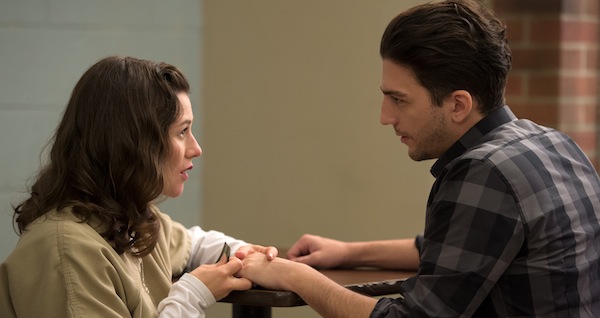
When it came to unexpected romance, Red and Healy’s (Realy’s?) thunder was stolen only by Morello, who finally found a man willing to walk her down the proverbial aisle – after seeing her crazed reaction to rejection a while ago, it’s a cute, funny pay-off for an endearingly deluded romantic. Not least because Muccio has no idea what he’s in for.
6. Suzanne’s sex book
While Morello was having Muccio sex in the rec room, the rest of the prison was getting its socks off to the naughty literary stylings of Suzanne. Moving further and further away from the Crazy Eyes moniker of Season 1, Uzo Adoba just gets better and better in the role – the start of Season 3 saw her sad struggle to move on from the loss of mother figure Vee, which made her later connection to others (via time travel, aliens and intercourse) all the sweeter. For proof of how nuanced she’s become, look at how she wrote sex so vividly, but remained a virgin. Then giggle all the harder at “Admiral Rodcocker” and the way everyone looked at his unlikely inspiration: the unwitting, unsexy, unhairy prison guard Wade. Phwoar.
7. Soso
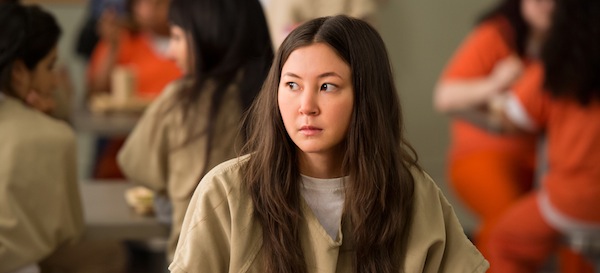
Soso was proof, once again, that even the most apparently shallow addition to the supporting cast can offer unexpected sympathy and substance. Soso’s hippy, privileged withering were irritating at first, but ultimately gave way to depression, isolation and a tragic attempt at an overdose. Her course of anti-depressants came courtesy of an indifferent Healy and an inexperienced doctor, who had just joined Litchfield and had no idea what was going on (or how to store his drugs securely), but there was moment of brightness amid the gloom, as Soso told Healy what she thought of him – and Suzanne rallied the gang to look after her so she could avoid Psych.
8. Assault on Sophia
“You really wanna be calling me lady-man when I got a fist full of your hair?” While Season 3 tended towards the comic relief side of things, Sophia’s story-line was an uncomfortable reminder of the nastiness that can go on in both modern society and behind bars, as Sophia was assaulted in her own hair salon. The bruised Laverne Cox had never been better, spending the season agonising over how to play both mother and father to her wayward son through the limited window of jail visiting times. “Come back here!” she yelled at him. “What are you going to do?” came the reply.
9. Daya and Aleida
Parenthood became a central theme for the series – introduced subtly by the use of Mother’s Day in Episode 1 – as Daya increasingly took centre stage. Pornstache’s mum agreed to take the baby, when born, raising the question of both quality of care and nature versus nurture – and the relationship between Daya her own negligent mum, Aleida. Aleida, inevitably, double-crossed Mrs. Stache, only for her boyfriend, Cesar, to be raided by the police – a heart-stopping sequence, as the baby lay, vulnerable, in the corner of his living room. A hint of reconciliation between Daya and Aleida come the close of the season made the whole subplot worthwhile – partly because it was a relief to have that chapter of the Litchfield saga more or less wrapped up.
10. Bennett’s dance moves
Daya’s plot, of course, would have been nothing without a hint of what was going on with Bennett – and we got not only our first flashback for the father, but also him proposing to her (naturally, that didn’t work out) and trying to make good with her family. His bonding scenes with Cesar were a highlight, topped only by the sight of him in the army dancing to Gwen Stefani.
11. Piper’s rise to panty kingpin
Piper’s unexpected business of flogging prison panties online – charging extra for undies worn by those who have committed worse crimes – was the surprising delight of the season: a dark but hilarious journey for our former protagonist. The thing is, Chapman has always been unlikeable, so asking us to hate her rather than root for her was the smartest move the series could make. Taylor Schilling easily rose to the challenge, firing Flaca, following an “employee” strike, consulting Red for gangster advice and alienating Alex for doing exactly the kind of thing that landed them both in there. Piper’s much-hyped relationship with Stella (the awesome Ruby Rose) was short and mostly confined to the season’s second half, but it gave Piper a chance to show how ruthless she was, betraying her lover by setting her up for a stint in Max. Best of all? Piper’s brother, Cal, who tried to concoct a formula for faking prison panties using miso soup. Mmmm, “base note of umami”.
12. Alex and the CIA
Alex, let’s not forget, was dragged back behind bars by Piper grassing her up to her bail officer – but it’s to OITNB’s credit that it to keep the pair apart (after some initial hate intercourse), allowing Alex to become a character in her own right. Inevitably, though, that left Laura Prepon to become twitchy and nervous about being hunted down by Kubra – a paranoia fuelled by the arrival of newcomer Lolly (the laugh-out-loud crazy Lori Petty). She turned out to be harmless and deluded, more than dangerous, but that only made Alex’s fear at the finale worse, as she was tracked down by a hitman for Kubra in the greenhouse, following his appointment as a guard.
13. Toast Norma
Annie Gold stole the show with the most bizarre subplot of all: the cult of Norma, whose mute stares and kind smiles rallied a whole bunch of idiotic supporters wanting to believe in, well, anything. There was an underlying point about organised religion (and its cruelty to Soso and Poussey), but, on the lighter side of things, an entire episode devoted to a piece of toast with Norma’s face on it.
14. Jewish food
Religion was at the fore once more with another surprising delight: Cindy wanting to convert to Judaism. What started out as comic relief, as she proved determined to get the canteen’s kosher food rather than the swill served up by the private corporation running the joint, suddenly became a hugely poignant moment: Cindy talking to a rabbi about why she wanted to be a Jew descended into a rambling monologue about faith, meaning, identity and purpose that, somehow, moved anyone watching to tears. It came out of nowhere, perhaps, which is a fault of the script, but Adrienne Moore’s performance is phenomenal – and the show’s ability to turn every the most unlikeable, selfish character into one of emotion and sympathy has never been more apparent. Amen.
15. River party
How do you finish a season without any major through-narrative? Easy: a party down by the lake, after a bunch of workmen accidentally left the fence open, allowing the inmates to flee the courtyard and swim around in the water. It’s at this point that all those apparently disparate subplots came together, from Daya and Aleida making up to Suzanne making a new friend, and Cindy being baptised properly into her new faith. But, of course, all that only left us with the question of what’s happened to Alex in the greenhouse, and what will happen when the inmates return to their beds – only to find them turned into bunks with twice as many people fighting for space. Everything, you suspect, will be different the fourth time around…
Season 4 of Orange Is the New Black is released on Netflix on Friday 17th June. Seasons 1 to 3 are available to watch now, as part of a £7.49 monthly subscription.


